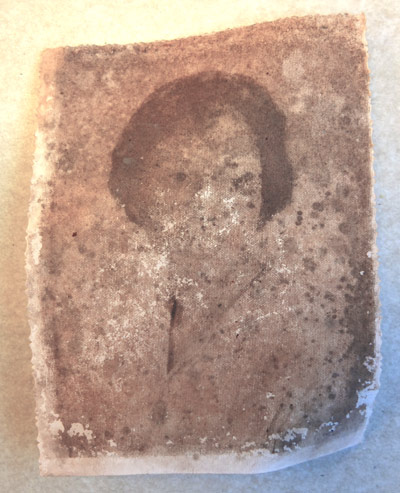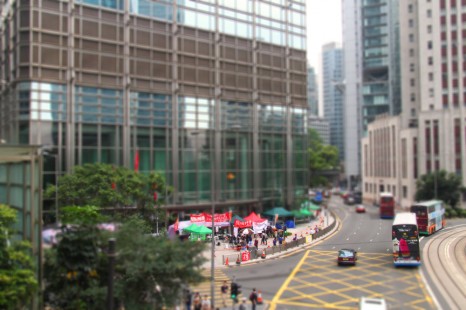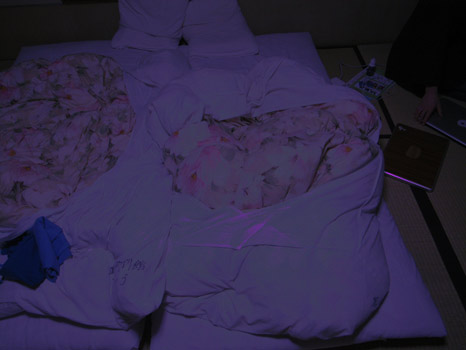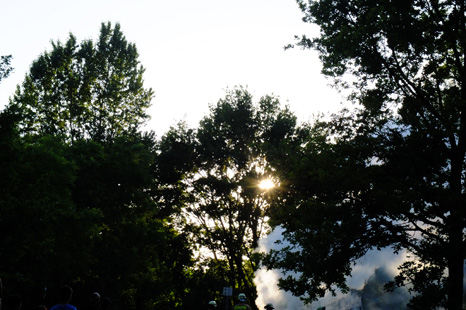 Most of us acquiesce most of the time, because non-thought——though it is powerful——never arises. What should arouse non-thought towards thought, and not-thought not feeling, when does feeling try to be thought, thought through? When does non-thought jump place, to movement? A body of time ruptures at any moment, and in two hours, after so many months, something changes.
Most of us acquiesce most of the time, because non-thought——though it is powerful——never arises. What should arouse non-thought towards thought, and not-thought not feeling, when does feeling try to be thought, thought through? When does non-thought jump place, to movement? A body of time ruptures at any moment, and in two hours, after so many months, something changes.
Thirteen Minutes Past the Hour. Arrive late for meeting outside of exit A, Central Station. Have the thought: avoid thinking at all costs.
Twenty Minutes Later. Ass barely touches the marble ledge when security guard gesticulates wildly: no sitting! Begin to reflect on previous events, not sure why still feeling so disturbed from the evening before.
Thirty-Five Minutes Earlier. The obstructing woman you come too closely behind while walking up the left side of the escalator chastises you in a patronising voice: “講聲啊呀 You COULD just say something, you know…”
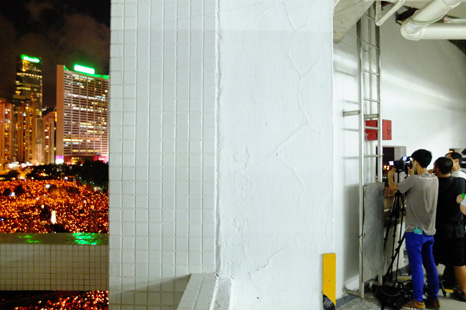
Four Hours and 43 Minutes Earlier. The sleek-skinned young persona who once told you he has less than two percent body fat appears early before the legislative council to plead against the passing of a wide-sweeping injunction against deemed obstructions of public space. This would include the outdoor seating of cafés, bicycles chained to railings and chess games on the sidewalk. Though he has gone to bed earlier the night before to be ready to make his statement, persona is unsure of himself, knowing it is a difficult topic to debate.
Nineteen Hours Earlier. A peaceful ferry ride across the harbour under an animated sky, where one enjoys sitting silently next to another, moving with the feel of wind instead of words. To feel what I thought was the lack of any assumption. Maybe this was a guise. But at least you knew already not to tell him you are glad to be back.
Approximately Every 8 Minutes. Uniformed security personnel from two different companies make rounds with their long, presumptuous footsteps. They wave horribly loud squawking bird machines left and right, shooing away sunglass and watch hawkers and deafening the ears of south Asian women standing around what one would have thought to be public space. People scurry around authority like cockroaches and rats, perhaps exactly because that is how authority treats us.
Fifteen Hours Earlier, A Neighbourhood Meeting. Sitting as per the usual observer’s role and hearing pending-career-change neighbour say that operating the photo developing machine is really a man’s task in that instinctive sort of way like driving an automobile. Hearing my own acquiescent laughter at his comment stirs a slow brew that has actually already begun long before, before his pending career change, even before your time.
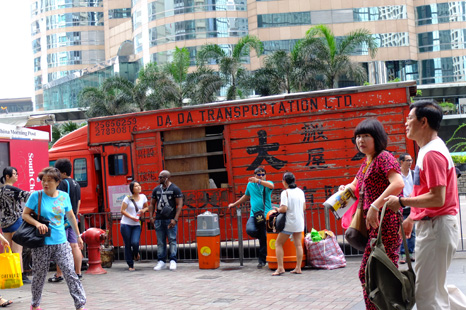
One-and-a-Half-Hour Later. Lean against a marble-slabbed column, begin taking photos out of boredom. There is a movement of freight trucks playing an extended, illegal game of “Musical Parking Spaces”. The nostalgic looking, red “Da Da Transportation, Ltd.” truck has moved up two positions in the time since you’ve been waiting.
Fourteen Hours and Twenty Minutes Earlier, Neighboorhood Meeting. The one formerly called boss pats my lips and says, “Don’t pout”. I brush him away and feel the annoyance twisting my face before being aware that I am annoyed. The first rising bubble is pricked, and some sort of accumulated non-thought begins to appear. Non-thought rises like a yeast of years, and recollection begins to fire into the night.
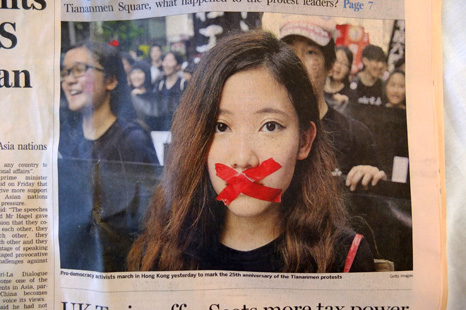
One Hour and 41 minutes Later. A young woman takes pouty-faced selfies with her oversized mobile phone while moving around different parts of the metro exit. This kind of activity doesn’t seem to be a problem in non-public, public-esque space. She takes a couple steps and adjusts the camera angle. She must be waiting, too. I imagine her sending her pouts to tantalise the person she’s waiting for.
Nine Hours and Forty Minutes Earlier. Take the metro home, getting off several stops earlier to escape the one formerly called boss more quickly and pass by the legislative building. Peering over a ledge, one can see through the glass walls into the lobby, where reporters and protesters and police gather. It doesn’t look as much like Taipei as it did in the photos posted in their secret chat group earlier in the evening. You walk back to the station but take the bus the rest of the way home.
One Hour and Ten Minutes Later. A woman with a cropped blouse printed with the giant words “SIMPLY SAY YES OR NO” passes from the escalator around the corner to the street.
Six Hours Earlier. Ears ringing in bed, cannot sleep. All those instances from months before come brushing back across the lips, those loving little touches of his hand swiping my mouth, patting my head…it all becomes disgusting. Anger recalls in the form of misplaced laughter, a reprimand against the retarded, brewing animal I am. How much more efficient it would be to have deer’s tolerance, or maybe one of the government on crackdown. “Justice”, they say! I wish for blinded fists swift and made of shiny marble, rather than this mushy, marbled brew of sad self-rage that has been concocted instead. We identify marble by its streaks, and even mushy marbles are variegated, with cracks of guilt for the self-pity that collects like fat on its surface.

Two Hours After the Hour. You think it’s fair to wait an extra thirteen minutes, since you were late before. You know we won’t make it to the island today after all, but at least you have cold marble to lean against while waiting in the not thoughtless, non-thought of brewing weather. Thirteen more minutes waiting at exit A could make a difference.
Two Hours and Thirteen Minutes After the Hour. You watch the clock as it turns, without so much feeling anymore about the matter. Just silent relief, you can finally walk away.
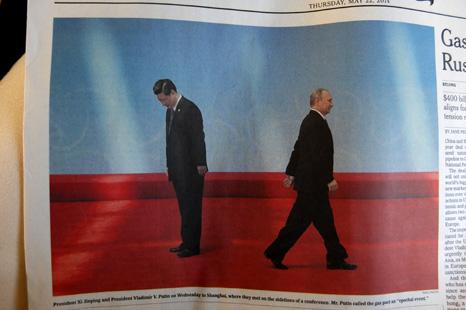 There, a coalition has been formed…
There, a coalition has been formed…
writing oneself: the institute for spatial experiments
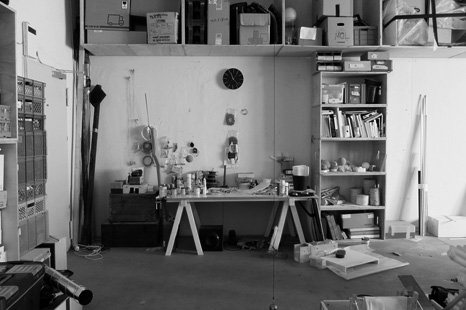
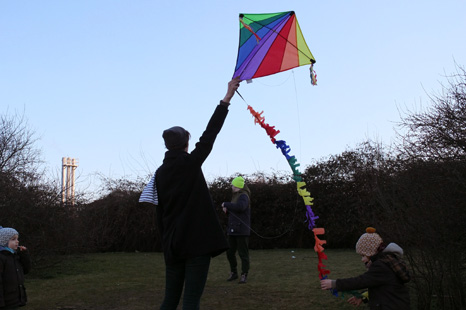
It could be said that these stammering movements begin egocentrically, not unexpected, as an awkward, unskilled dervish of thoughts, curiousities and flying trajectories (from me) of things trying to find their place. In other words, I am writing myself in this conversation, between you and me. What we do not know about one another has a context embedded in a structure known as art, or the institution, or the awkward banter of appointed meetings. I write myself in concentric circles that could fly through you or past you, and you may do the same, depending upon what could be put into words, where words may embody bodies and bodies circle around one another.
There is a book somewhere called Speech Matters, and in it an artist parenthesised as R.G. wrote this for his biography:
What is a biography, if not the markings of certain habits, born here, did that, a sentence or two about the ideas or questions one is concerned with, details, places of study, cities lived, a list of ‘accomplishments’. How to punctuate and elaborate a habit, until it breaks, cracks open, begins to stutter, bleed, set itself afire, and disappear into a crowd. She said, a word or two different, a small mark, to say, nothing more intimate in saying no, stopping, refusing. Why not have this book write a biography of itself. Why not a language give an account of its life. Here I said this. Here it did that. Here she died, at this date, at this time, at this place. Here she was, when everything came together and folded. Here she did this work which would never live up to anything but what an other would make of it. Where to find this other?
I have seen other versions written elsewhere. If we meet, of course it’s only one of any possible.
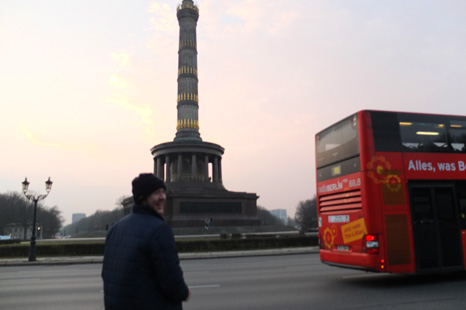
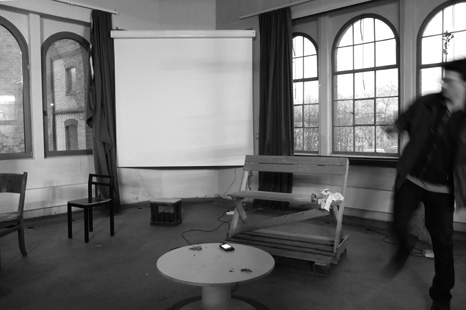
from the 三行實驗室 three lines laboratory
参加了三個艺术家舉辦的“三行實驗室”工作坊,每一個參與者寫了一個三行詩給另外一個不一定認識的人,在磁帶上朗讀錄音。每一個人錄完之後,組織者收集了又按照人名重新發給每一個人寫給他的三行朗讀。發完組織者說“好,那我們今天就這樣結束啦,你要自己回家後找方法播放你的磁帶”。當然家裡沒有,不知道要等多久才能聽到這首詩就拿著這個神秘的小磁帶走。
工作坊之後去找我姑姐一起吃飯,她告訴了我大伯過世了。第二天她和其他阿伯去收拾大伯的屋,要準備把他30年一個人住的房子還給政府。他們回來之後給我一個老行李箱,裡面放了一些大伯的東西。其中有一個小AIWA放音機, 外殼壞了但是還能用。聽了你給我寫的三行詩,聽到在那三行之間我和你之間的距離,也許也就是這個地球上的每一個人與另外一個人的距離。
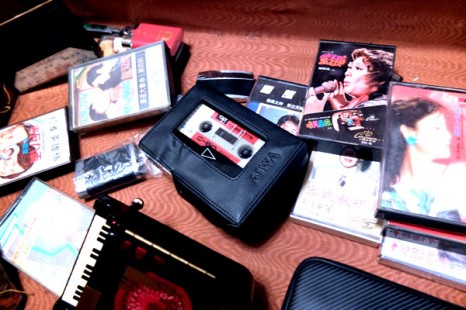
notes from the yangtze (holdings), HIT, strike, limited
It all started with an image, though one that really came into a so to speak light before it even existed. One sees, firstly. Punctum as a form or attention, filter or framing device——an interruption in the act of seeing which triggers a refraction where association is the flipping upside-down of the mirror as much as a natural stream of thought. Oh. Constantly grasping at words. Try to describe flows, try to pick up words that describe people: 散文诗人, the great essayist, experimental folk maker. One is never enough, of course——artist, writer, activist——but if i could describe to you a process instead then perhaps i wouldn’t have gone through it all in quite the same way anyway. Words destroy me, time passes, and in the meanwhile we play a few games.
It all started with a seasick steadicam. It was the bane of those first few weeks of working, becoming one of those challenges that one cannot give up on simply because you’ve already wasted too much time trying and cannot bear to let go in vain. And those many hours spent walking back and forth the third floor flat tinkering with an orange handsaw arm, PET bottle caps and various metal washers came out of a whim, really, based upon a beginner’s rereading of The Politics of Disappearance and moving around in Hong Kong. Movement, restlessness, sitting at a desk overlooking noisy Shanghai Street looking for the right troubleshooting video to make the damned steadicam work as it should. Sitting as restless as distraction, the wrong videos lead to other flows, like centripetally-spinning eggs scrambled inside the shell and shanzhai effecting tilt-shift optics with video and image-editing software.
And we continue to work within that distraction, as if the Cantonese version of looking (眱) already directed our eyes askance, the Scheimpflug principle was made physical as if we were moving throughout the city while laying down. Or seeing through a viewfinder, especially when mounted on a seasick steadicam held at waist-height. Tilt-shift is a subtle change in perspective, and your weak limb makes everything feel more distant, passive but with uncertain intention like sleeping next to someone with their back turned to you. I wonder if feeling distance from these images makes one more of a subject or less of one.
He says, “I am thinking. What if the body were not important?”
We keep walking along an overpass, and she comes to match our pace on my right, listening. She interrupts him at one point, and when she closes her statement with, “Maybe it’s an over-interpretation“, her body moves away from us while keeping the tempo.
Later while they are opening up the furled black banner in her arms, I say to him, “In principle, we should be free. But with the body there is possession. And with possession there is the basis for all socio-political conflict.” We stop at an intersection, in the middle of the street. Some people sit down.
It could have all started from there. He had warned me about getting arrested, but for all the supposed escalation it starts raining and traffic is restored. Everyone shoots images of everyone else. The three-man police film crew make a tilt-shift view, their camera perched on a gaffer pole above the crowd, one with his hands following gently on the shoulders of the gaffer. Everyone is in close proximity; the third is close behind.
She writes, for instance, “the Polis, properly speaking, is not the city-state in its physical location; it is the organization of the people as it arises out of acting and speaking together, and its true space lies between people living together for this purpose, no matter where they happen to be.” The “true” space then lies “between the people” which means that as much as any action takes place somewhere located, it also establishes a space which belongs properly to alliance itself.
—Judith Butler, “Bodies in Alliance and the Politics of the Street“
When you look up tilt-shift photography on Wikipedia, you will find an image of Hong Kong viewed from Victoria Peak, as if that particular perspective and reference were made for that kind of displacement; distortions require further tweaking before we realise that the spaces of camaraderie encompass kilometers and the ones around them hone in the millimeters of a lens during public conflict. Focus shifts while waiting in civic procession: a boring walk, intermittent conversation, a hand-painted sign. She asks how we can change the circumstances. It is uncertain whether or not the question is real, let alone try to imagine jouissance or our own semblance. Keep on walking, they say, there’s nothing to see here.
Posted by 丫 | reply »i wish i knew how it feels to be free
thank you to king689soulclassics
we wrote twice last year. growing smaller in our livelihood. making reparations, finding ourselves present, losing words of reflection for bullshit become routine. it’s an alienating experience to observe others speaking in endless strings of aphorism and cliché, like miraculously knowing the code for things that you did not care to know about. flooded gates . cinema and the sound of air conditioning . the ballad of the broken birdie records, that was forever.
you can describe things, but you cannot tell them.
she said we made it up to overcome change, that forever . because the passing arcs of the sun and moon were just too much. the drummer’s steady hands were deceiving, when it had only been about the joy and trauma of difference that really counted . “difference and deferral” . counting . rational concepts . and a one. and a one.
like a new way of seeing something.
two, three. counting and singing again, rushing into nines and ten. time was not the matter at hand, and i could only otherwise imagine some kind of spatial parameter (cigarette, balcony, distance from one apartment to another), but of course it’s less rational than that, our descriptions are as infinite as desire. we’ll be 靠谱 one day.
it sounds too prescribed, doesn’t it——sticking to the score——exactly what we didn’t want. so instead we became impulsive, 花心 flowery hearts, the wallow, those hands grabbing at your face, fear, the sort. no……please ask me to write songs instead, wait for that moment of forever . two times a year at least.
Posted by 丫 | more »the light of day – or, the most intense fiery sadness inside the palest of blue
the difficulty of writing. therefore words become physically written entities. are animated by the postures and movements of the hand. the word becomes image. is placed in perspective. the natural rhythms of speech and of reading contorted. a video on writing:
act 1:
the street is where it finally played out, no confining corners of a room, simply a street and a doorstep and a door. a door that remained closed. closed that night and all the nights after. closed for several years. there were a few words there on the street, an evening chill picking up, words uttered from mouths tightly locked into position, not once breaking out into smile, no more spontaneities. now i remember it was an iron. the last object that passed between us. an iron. your iron. my iron. no ironing board. the irony. an iron with no more spontaneities. all those years summed up into the exchange of a single iron. a pink iron.
act 2:
you entered the studio that day and it filled the room. eyes locked and we understood. a kind of understanding that was hard to come by in those days. “we paid people 50 kuai to cry”. leaving the party early i cycled to the apartment that night, shared by several, it was only you there, you and a dvd menu on loop, the same jingle over and over again, you kept emphasizing the word ‘taken’, ‘taken’, ‘taken’ – i guess it was the opposite of what i was getting – the other word that night ‘transgressive’ – you and bataille – he and whitman – i couldn’t do it – sorry bataille – sorry whitman – i couldn’t do it – so much for ‘transgression’ — whenever i revisit the room, you are both there, bataille and whitman, bataille, whitman and me and the king-size bed. the torrent of words finally gets me writing on afternoons alone in the house, just before the onset of twilight.
act 3:
a gallery space, half emptied out, i keep going back there, the mounted and framed photographs are placed on the floor, leaning against the wall, a few are supported by the pillar in the middle of the space, you try to get them to leave, to let them leave us behind, but there is simply no subtle way of doing it and you mutter at them clumsily, they leave, we are left, the afternoon sun is slowly disappearing, the lights are left off, we talk, walk around and shout, until we settle behind the reception counter, a chair and a wall for support, we can do this but we can’t do that, what do you want from me? don’t ask that of me! she tells me his knees were shaking all the way on subway ride back home, i was never shown shaking knees. now, i only ever meet you in that gallery space. we don’t exchange words just glances and parts of our bodies in a deafening silence, the afternoon sun perpetually setting.
act 4:
an early spring evening, i keep trying to leave: “i have a party,” “a party to go to,” “a housewarming party”, but something keeps me at your side all night, first we sit at the “less important people table” and are seated next to each other, after more guests stream in we are both upgraded to the “more important people table”, again placed next to one another. what luck! finally settling into a comfortable position we continue our conversation, your leg brushes against mine a few times, i recall her remark about “woody men”. and i can’t stop staring at the eyes. can’t stop. the whole night – no rooms here, but the chambers of eyes to revisit “an intense fiery sadness” i describe to her later “inside the palest of blue”.
.
Posted by a | reply »for rene, wendy, small O and rancière’s translator steven
The waiting room of the Department of Motor Vehicles is of course a dismal place: expectedly generic cream-coloured walls, empty except for an L.E.D. number call board and the state logo plaque, a television in the corner and a single formica counter top with ball-point pens on chains attached to it. The rows of chairs are arranged in two directions, presumably for maximum television visibility, but most people look down at mobile phones anyway, or stare into space somewhere beyond the range of the television set.
But today it is an exciting scene to return to, and waiting vacuously feels like a nostalgic act. It looks exactly the same as it did when I came here many years ago, the same bureaucratic cream wall for the same bureaucratic procedure. And for all it’s clichédness, i’ve missed the variety of colour presented behind all that blankness of expression that can only be witnessed in North America. There are probably as many planets and cultures here as there are individuals in the waiting room, but they’ve cleverly staggered the numbering system so that we don’t examine things too linearly. An Asian boy wearing a shiny black down jacket sits down next to me, his transparent document folder neatly organised with all the required paperwork. He doesn’t have to wait too long, and when his number is called I feel the surprise in the black-rimmed eyeglasses slouched on his nose as he walks away. There is a bearish old man who inches across the room with a walker, but his loud, craggy voice with a strong southern accent (enough to satisfy Michael) flirts with the DMV employee like a slick, young stud; other people in the waiting room smile with their heads down. Everyone is polite.
A skinny, stereotypically troubled looking girl (black eyeliner) wears a sleeveless short dress and lazily kicks her three bags——two black and one teal with an E.T. airbrush print on one side——on the ground in front of her as she moves up the queue. A mother and her two daughters, all dressed in black, wait seated together in the row in front of me. The girls take turns using their iPhones or handheld mirrors to check themselves in preparation for having new ID photos taken. Mother gets up at one point to remind the DMV employee to replenish the toilet paper in the women’s restroom and upon her return, says to the girls, “Well…that’s taken care of.”
Beyond a staggered numbering system of waiting, it is difficult to know whether or not we exist in the same time-space. How did you assume that there was a consensual notion of reality? When could we have used the word “us”? For all our attempts to describe it so, how do we know a relation?
My thoughts move from the backs of people’s heads through to the ninja movie on TV. Flying black-clad zombies are pierced by tips on how to save money and political campaign advertisements. There aren’t any plants here. The mini-blinds along the windows are all open to differing degrees. It’s cloudy outside.
Attention diverts to my own electronic devices now, too. I brought the silver and black mobile phone you left when you moved away. I put my SIM card in it and suddenly our lives are mingled into one interface, except that much of mine is sharpened into little rectangles of an unrecognised encoding. Bureaucracy, an organised form of protectionism, just as easily renders us illiterate as it claims efficiency. For the same reason it is not possible to delete the folder of your text messages, so these few months of your life stay stuck in my hands, another life in another city not here, amidst 60 odd foreign faces at the Department of Motor Vehicles. Everyone looks bland here, but somehow it makes certain relations all the more apparent, and I feel close to you somehow, looking inside-out. I wish you were here to pass the time with me, to run errands together and wait in line and make bureaucratic procedures intimate, like bitter jokes about getting married and having kids.
These are momentary islands of waiting for another radical shift of the senses. Waiting is like insurance for belongingness, and realising now that I’ve missed you all this time I feel a closeness that only occurs in distance. not sure whether I prefer it this way or not.
I ask the attendant behind the computer how long the wait is. “That’s the question of the day”, he quips, and of course we both know that we can never really know how long we have to wait. Ask how much work we can get done in an interim period, or ask how a simple quip and come-back rides us through the day. Ask a slippery American tongue, ask for a decade. When I asked her once about love she said she would choose the option that gave the most possibility. But even no is a possibility. So I try not to count too much.
Posted by 丫 | reply »